5. Mercedes Ruehl for The Fisher King (1991)
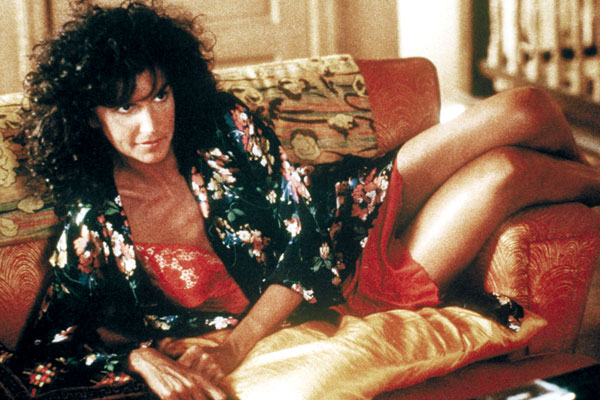
Unlike most actors on this list, Mercedes Ruehl has actually had many credits to her name post-Oscar win. More specifically, she currently has forty-three acting credits to her name since 1991’s The Fisher King, not counting individual episodes of shows like Frasier and Entourage.
What’s bizarre about Ruehl’s career trajectory is that after winning a Best Supporting Actress Oscar and Lead Actress Tony Award only months apart, her career received a quick spark that quickly died out. She starred in a mediocre adaptation of the Tony Award-winning play, Lost in Yonkers (the same play for which she won her Tony) and had a small role in The Last Action Hero simultaneously, but directly afterward, her career took a sharp turn.
Despite her relatively unknown status within the industry before The Fisher King, Mercedes Ruehl held her own against established stars Robin Williams (also nominated) and Jeff Bridges (should have been nominated) as Bridges’ put upon but optimistic girlfriend Anne. Clearly, Ruehl was meant for big things.
Unfortunately, over the last twenty-plus years, Mercedes Ruehl went from promising breakthrough talent to episodic guest star and TV movie mainstay, having consistently appeared in over fifteen Lifetime and Hallmark style movies. It seems now as if Terry Gilliam’s underseen, yet brilliant, The Fisher King did nothing for her career since Ruehl is now best remembered as Tom Hanks’ mother in Penny Marshall’s Big (1988).
4. Jennifer Hudson for Dreamgirls (2006)
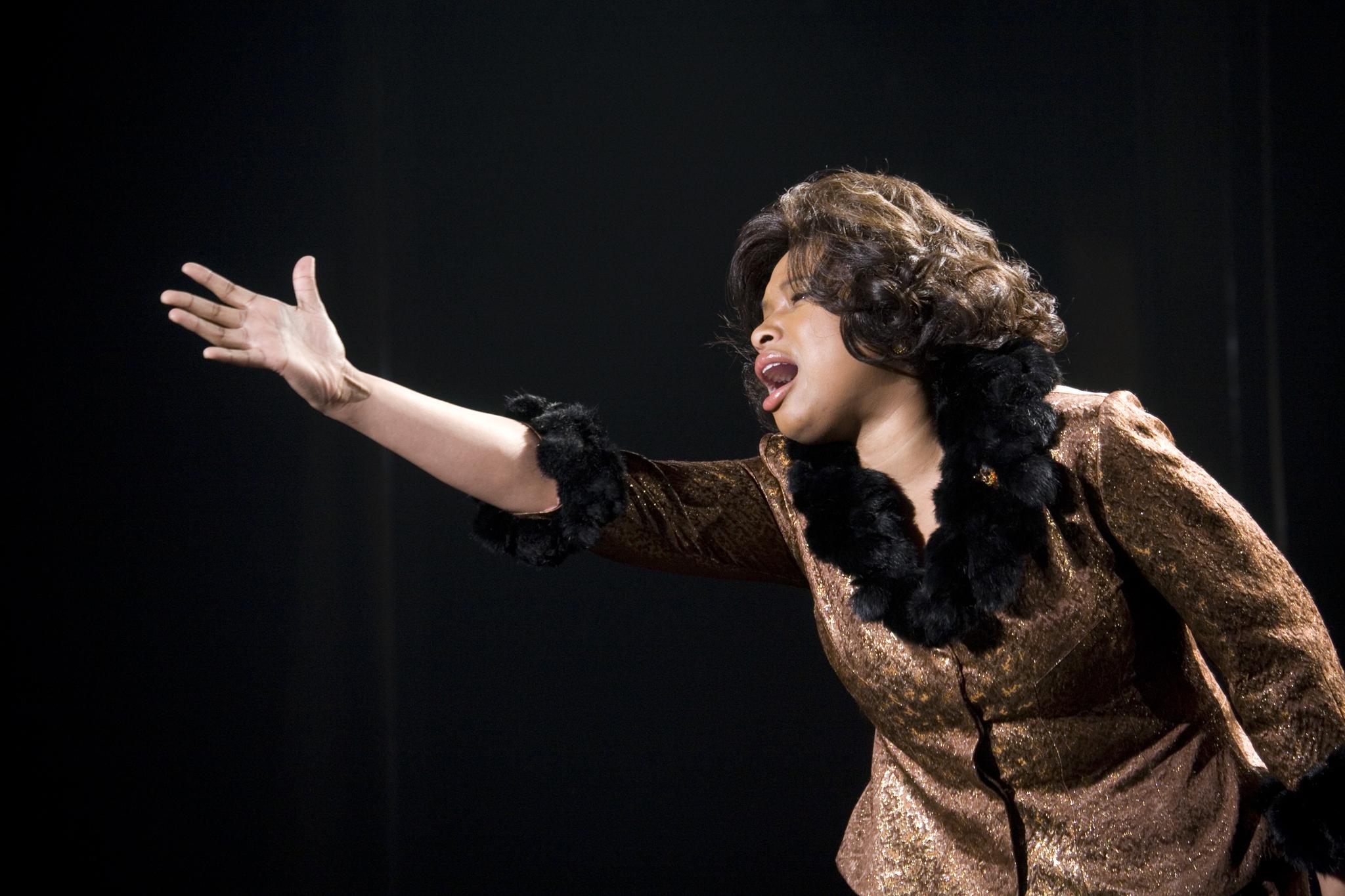
We can talk about how this Oscar win was unexpected until we’re blue in the face. Yes, she was a former American Idol contestant, one that finished in seventh place, but her Supporting Actress win for Dreamgirls, a role she was born to play, should have been a star-making turn.
She outshines Beyonce — channeling Florence Ballard’s vocals — and hits the movie’s emotional highs with her portrayal of the troubled, utterly sad singer. Jennifer Hudson’s story is what the Hollywood dream is really made of, a young talent that comes out of nowhere, blows the audience away, walks off with the award and becomes a star.
Make no mistake, we’re well aware of the fact that Jennifer Hudson still has a successful music career, has had several endorsement deals and continues to sporadically act. And while we don’t begrudge Hudson her music career, her limited and somewhat dubious acting credits since winning her Oscar leave a lot to be desired.
And in spite being one of the more recent African American Oscar winners (even though she won almost ten years ago), she stands as proof of the unfortunate movie industry today and its continual lack of roles for black actors. Instead Jennifer Hudson has yet to make another cinematic impact, despite trying with the 2013 biopic Winnie Mandela, a critical and box-office failure, albeit one that at least proved she was still serious about acting.
3. Ronald Colman for A Double Life (1947)
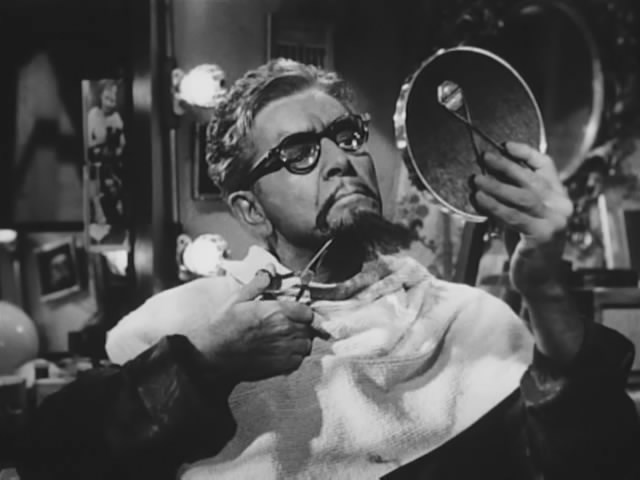
Ronald Colman is the only person on this list who had been nominated for an acting Oscar prior to his win. In fact, Colman was a certified star and leading man by the 1920s and scored his first two (of three previous) nominations both in 1930. Ultimately, by the time he was handed his Oscar statuette for Lead Actor, he had a large and impressive resume under his belt.
Having worked with directors such as Frank Capra, Ernst Lubitsch, John Ford, Lewis Milestone and Joseph L. Mankiewicz, coupled with Colman’s reputation as the consummate leading man, it simply makes sense that he won an Oscar for portraying a method actor — before the “The Method” became mainstream — in George Cukor’s engrossing A Double Life.
So it’s simply astounding that an actor, who had an established career, would just disappear from the Hollywood spotlight shortly after winning the industry’s most distinguished prize. To put it into perspective, imagine Leonardo DiCaprio returning to the screen only once more, three years after his win for The Revenant, and then simply moving onto TV for the rest of his career.
Because that’s exactly what Ronald Colman did; he followed up his Oscar win three years later with the underseen Champagne for Caesar before taking on a string of TV appearances, a cameo in Best Picture winner Around the World in Eighty Days and making his final screen appearance in cult director Irwin Allen’s debut The Story of Mankind — released less than six months before his death.
2. Haing S. Ngor for The Killing Fields (1984)
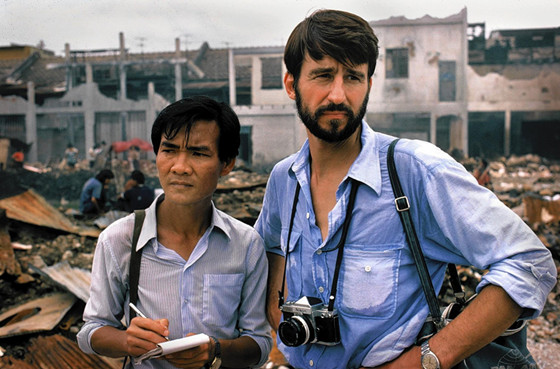
An absolute unknown in American cinema prior to 1984, Dr. Haing S. Ngor was plucked from obscurity to portray the dedicated Dith Pran in The Killing Fields, regardless of having never acted before.
His tragic life story makes his performance all the more unsettling, when you learn that Ngor was indeed a victim of the Cambodian civil war, forced by the Khmer Rouge to give up his life and identity, subsequently being thrown in a concentration camp where his wife passed away during childbirth; something he could have prevented were he able to reveal to his captors that he was a gynecologist.
It’s not difficult to imagine that Ngor’s involvement in The Killing Fields was personal to say the least, and that’s showcased by his deeply affecting performance. He became the first man of East-Asian heritage to win an acting Oscar and could have likely retired, returning to his medical career.
Rather, he continued to act through 1996 in lesser known ‘B-movies’ but never again appeared in anything as critically lauded (or commercially successful) as The Killing Fields. His already heart-rending story met an utterly tragic end when, shortly after wrapping his last film, Ngor was murdered outside his Chinatown home in downtown Los Angeles, by members of a local Street Gang — reputedly Khmer Rouge sympathizers.
There’s no telling how his life would have shaped up if he had a more successful career in America. Surely he may not have been forced to live in one of the more dangerous parts of Los Angeles — but that’s all pure speculation. The fact of the matter is that in the eleven intervening years following his Supporting Actor win, Ngor could not manage to find another memorable performance.
Throughout this list we have omitted actors who died shortly after their Oscar win as that wouldn’t have been fair, but Ngor had ample time to become a star in his own right. Sadly, his status these days has returned to that of an almost unknown.
1. Harold Russell for The Best Years of Our Lives (1946)
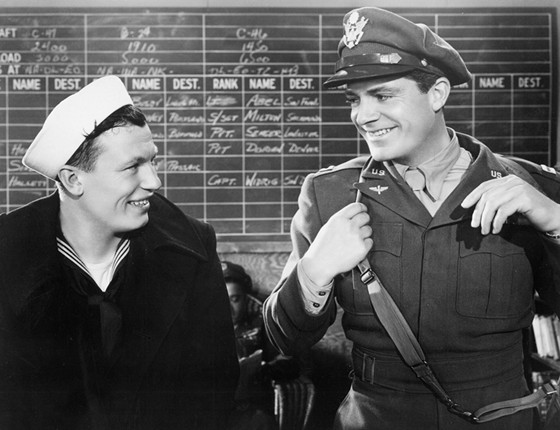
To be fair Harold Russell wasn’t an actor. In fact, after being cast in The Best Years of Our Lives director William Wyler was horrified to learn Russell was planning on taking acting lessons, urging him that the part of Homer Parrish was simply meant to be him; a young man, disfigured by the horrors of war.
His performance, a lightning in a bottle moment, was one where the producers found the perfect physical embodiment of the character. Despite having lost his hands to the war, despite being the only person that could have truly played Homer Parrish, the part still required Harold Russell to have an emotional connection to the material, which led to his nomination for Best Supporting Actor.
It would be easy to write off the nomination as a throwaway honorary award due to Russell’s bravery and commitment to the role, and indeed the Academy bestowed upon him their Honorary Award for that very reason.
The fact that he beat out Clifton Webb, Charles Coburn and Claude Rains (all actors with long, distinguished careers) in the competitive category is doubly impressive, making him the only person to ever win two Academy Awards for one performance. And while he may have gotten some of the sympathy votes, or maybe even won a coattail victory, there were those in the Academy that were, at least in part, paying attention to his incredible portrayal of a PTSD survivor.
But Harold Russell is the true embodiment of an actor who won an Oscar and then disappeared. In our humble opinion there are many characters Harold Russell could have portrayed in Hollywood, in spite of Wyler’s advice for him to finish school and to not focus on being an actor. Consequently almost forty years passed before Russell took one of only two more acting jobs, and although he kept busy with personal crusades and charity work, his career in Hollywood was over as quickly as it had begun.
What are your thoughts? Did we miss anyone that got passed over after winning an Oscar? Did anyone’s inclusion offend or inspire you in other ways? Head over to the comments section and let us know.